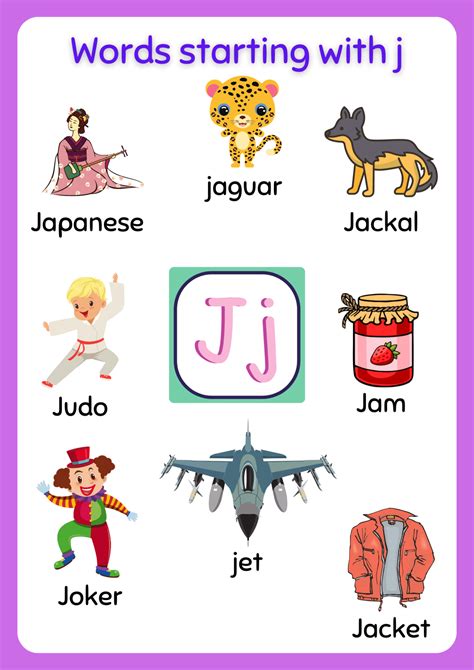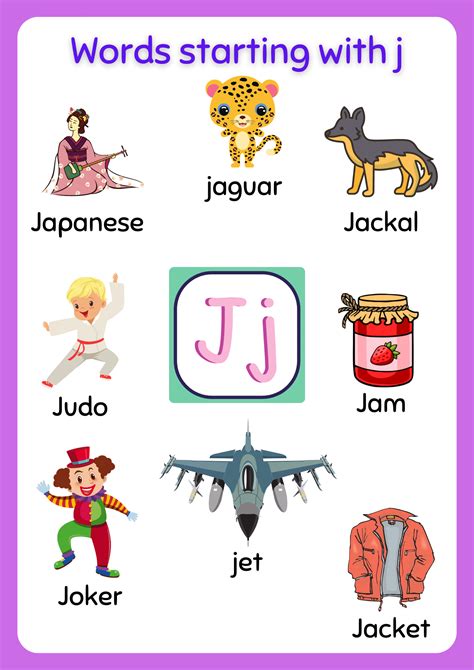10 W and J Words You Should Know

10 W and J Words You Should Know

Understanding the nuances of the English language can be a challenging task, especially when it comes to words that are less commonly used in everyday conversation. Two letters that often pose a challenge are W and J, which are home to a plethora of words that can enhance your vocabulary and improve your communication skills. In this article, we will explore 10 W and J words that you should know, along with their meanings, usage, and examples.
W Words

1. Wistful

Wistful is an adjective that describes a feeling of melancholy or longing, often for something that may never be attainable.
Example: “She had a wistful look in her eyes as she thought about her childhood memories.”
2. Whimsical

Whimsical is an adjective that describes something or someone that is playfully quirky or humorously unpredictable.
Example: “The artist’s use of bright colors and abstract shapes created a whimsical atmosphere in the painting.”
3. Wary

Wary is an adjective that describes someone who is cautious or suspicious, often due to past experiences.
Example: “After being scammed online, she was wary of giving out her personal information to strangers.”
4. Winsome

Winsome is an adjective that describes someone or something that is charming and endearing.
Example: “The winsome smile of the child melted the hearts of everyone in the room.”
5. Woeful

Woeful is an adjective that describes something or someone that is pitiful or sorrowful.
Example: “The woeful state of the economy had a devastating impact on the community.”
J Words

1. Jocular

Jocular is an adjective that describes someone or something that is humorous or lighthearted.
Example: “The jocular tone of the comedian had the audience laughing throughout the night.”
2. Judicious

Judicious is an adjective that describes someone or something that is wise or discerning.
Example: “The judge made a judicious decision, taking into account all the evidence presented.”
3. Jaded

Jaded is an adjective that describes someone who is world-weary or cynical, often due to repeated disappointment.
Example: “After years of working in the corporate world, he became jaded and disillusioned with the system.”
4. Jaunty

Jaunty is an adjective that describes someone or something that is cheerful and carefree.
Example: “The jaunty tune played by the band got everyone in the mood for dancing.”
5. Jargon

Jargon is a noun that refers to specialized or technical language used within a particular group or profession.
Example: “The IT specialist used a lot of jargon that went over my head, but the client seemed to understand it perfectly.”
Conclusion

In conclusion, expanding your vocabulary with W and J words can enhance your communication skills and add depth to your language. By understanding the meanings and usage of these words, you can express yourself more effectively and accurately convey your thoughts and emotions. Whether you’re a writer, a speaker, or simply someone who loves language, incorporating these words into your daily conversation can have a significant impact on the way you connect with others.
Why is it important to learn new words?
+Learning new words can help you express yourself more effectively, improve your communication skills, and enhance your understanding of the world around you.
How can I incorporate these words into my daily conversation?
+Try using these words in context, either in writing or speaking. You can also practice using flashcards or quizzing yourself to help you remember the meanings and usage of these words.
What are some other resources I can use to improve my vocabulary?
+There are many resources available to help you improve your vocabulary, including online dictionaries, thesauruses, and vocabulary-building apps. You can also try reading books, articles, and other materials to expose yourself to new words and phrases.



